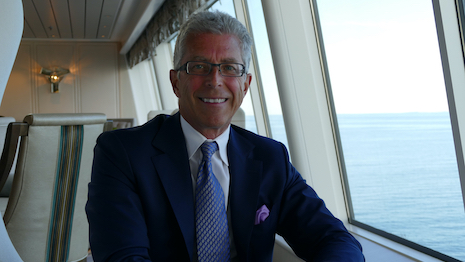By John Schadler
In 2019, experts, analysts and insiders in the travel and hospitality industry spent the better part of the year dedicated to predicting what was in store for 2020 and the decade ahead.
Numbers were analyzed, patterns were interpreted, and the general consensus was that 2020 was going to be a banner year that would usher in a prosperous decade for the travel industry.
Experts foresaw increases in everything from off-the-beaten-path destinations and micro trips, to eco-friendly tourism and space travel. This was it – this was going to be the year of all years for travel, tourism and hospitality.
Of course, none of those predictions could have possibly accounted for a global health pandemic that would lead to the U.S. Travel Association reporting a $400 billion decline in travel spending and 6 millions jobs lost by the end of April for the tourism industry.
While there are many conversations being had worldwide about how we got to this point, what is important for the travel industry right now is focusing on how, and when, we bounce back from this.
Make no mistake about it: we will come back. But it is important that we acknowledge that the path forward will be a long road paved with drastic measures such as stringent health and hygiene standards, effective communication and heightened procedures.
So, where do we start?
Patience
Not only has COVID-19 taken a physical toll on thousands of people across the globe, it has instilled a sense of panic, fear, paranoia and mistrust in the minds of millions.
This means that it may be a very long time before consumers feel safe traveling again and, we, as an industry, have to be prepared for that.
Expectations have to be managed and harsh realities have to be faced: consumers will not be flooding through the doors as soon as the all clear is given – not only because they are afraid, but also because many people will no longer have the financial means to travel and business may not have the revenue to support it.
However, I suspect that this period of sluggishness and apprehension will be short-lived and that, with proper precautions and strictly following advice set by global health leaders, the travel industry can bounce back within 12 months.
Between now and that time, it is likely that we will see small movements back to normalcy, such as short distance weekend trips and driving rather than flying, as consumers will feel the need to have control over their safety and travel plans.
Safety and communication
As the coronavirus dust begins to settle and we see consumers regain the urge to travel, it is imperative that the hospitality and tourism business community turns its focus to implementing procedures and policies focused on providing the highest possible level of consumer safety through cleanliness and hygiene.
No matter how strict or thorough you think your current practices are, they need to be at least doubled to give travelers peace of mind.
Las Vegas’ Wynn Resorts, for example, implemented a practice in mid-March using thermal cameras to screen guests for fevers. Through this process, it was able to identify people with a temperature of 100.4 degrees or above, and discreetly contact them to discuss vacating the premises.
Measures such as this, which may have appeared extreme prior to COVID-19, will have the potential to bring peace of mind to travelers and may become common practice for hotels and cruise ships around the globe moving forward.
It is also important that as these new policies and guidelines are developed and put into place, they are not hidden behind closed doors or internal memos.
These changes have to be widely communicated to potential travelers frequently and resolutely.
The months following the “all clear” will provide a critical opportunity for hotels, airlines, restaurants, casinos and every other industry under the travel umbrella to dial-up transparency to 11 through over-communication, customer service and quality assurance.
Retooling
Even with increased safety, sanitation and transparency, there will still be more to do on the path toward recovery.
Unquestionably, the industry will need to incentivize the marketplace with discounts and value-enhancing offerings.
I believe that the most prevalent among these will be:
- Creating value-oriented packages to extend hotel stays
- Establishing special incentives to loyalty members such as double points and special events to rebuild trust
- Incentivizing business travelers to extend their trips for leisure
Additionally, there is a large chance that we may see the business community lead the charge when it comes to the revitalization of large gatherings with large trade shows and exhibitions.
Hotels and convention centers will need to carefully think through their approach about how to create safe environments for these types of gatherings which do a great deal to stimulate the travel industry.
If the COVID-19 pandemic has shown us anything, it is that we are social creatures.
Human interaction fuels relationships, creativity, collaboration and commerce, and travel offers us a way to share that with others while learning from them in return.
THROUGH THIS crisis, we have seen how bleak things can get when we are robbed of shared experiences, and we in the travel industry are eager to return to our jobs in hotels, transportation, restaurants, casinos and more to once again bring people together.
We are a resilient industry and we will be here when the dust settles and we all reach the light at the end of the tunnel, to once again make the world feel a little bit smaller by connecting people from all over the globe.
John Schadler is managing director of OH Partners, Las Vegas, NV. Reach him at [email protected].
{"ct":"RdrKKKFOEJTcmzXGoD6hysbXYZm3beb+BPF9XXefrCwje33nZXWlBbxiCkbyDRNkF3n8RlvG5zWefcPZ9Ua1qQgkZiHJXZWQs1pd7hV7LJD80hujGlA8+e0vy1icrcgpvVzT8uUiUHOMPoaVgJpCcqD9kXKHQ7NxGXYFXnLyfdyEnRO5y0MOAPtXiZMZdyaKvZViahf3rv\/Hr6GYPduxfiQxfsxAxiaFfDv8b8obGrvoHoavmz059gNRHCPodw\/CpT7mJoGedFRpyjNMn\/oEeRIQWCnFdkrhksDEW4B\/qtnLb03ZtV\/AvQAYa7Idy4Kd4efSIa++\/q+VEk6Q4mbrmYpYWOtk3GKzu7lNqvv3uYN14U7aMIv63stFcw6PrJKHLOXmZoomhjASKtlYTFb+PYc4VxvB5mSrVb56WiTAu6A0OQ5Y3Ruve8ljdlJHZHGJLIPJ4ulST1bR0zj5xA+tjTb4+hzZ8dEvsmqDZZwZABef1Da3K6HWNIB7pFzEfl6Sxc\/NpbrpGgv5Obw2cZUlNPaXkcvm0s7F3A7aZPX5VVmQPoKUDdNDN+k\/HMtwn3yfWy83ZA0q3HC2998EQWBcsMEvmxqZdG9hmidD4QplExBF\/m658UcF94KVsTjS+qeFUE\/nkLHMCZS+ajNxHStjptjmIl13l6dS9wuSifGTw1SWJEaQz9thdv4RssmPgkSeKYo+oQj\/P6TF+23RI2TuOwQIpp\/E33+PCmYLecmwSS3iZbasF96W5nRrp6861oBMR19odMFhbCACLXV9kTOatW1cVrRwM0mfaB1AG7Emh7u7mtexU3KFWA6O8MYQIsvUOXQaR0CkxzvMNRGhcJPNQEOArRzbuYWWt9rgtaQNCEk358YLBsI8qrIETr8WREd1hgsjmkrGpyOsOKt1eC6k29C+YaiYRdUfwm09i4t93e\/kO5oG8SfcJLAu9ZkMG+9MCNyki1nl2OQfIvvO29ty14PUbTBdOpq9vfMNd5jJ5QkFqS3l8gpnu5DabjSPAuV+A18v7U6Z4xlLvd7\/VkxodjE2cUm7c\/TQAC7uc335kMfWvZRJIunX5qn4y7T81byBDV\/XDUWi4NJtcj4pxG2UkZWbfcaxloGa10m5wY\/IsKi4iWmtAZHnO1dS3D5aTjSKhlqPEd6GRKdjKWqwZoFQZKBtkzcAmSqcHzsaB1fIWwlL34F7tXp6f1Q5aC9HngiC07uUAJ9IVWzBbIaaNtIx\/jlCVUHTmrOu7v39FqGBE5Out08hb29jkk1BxQVm2VZVNu0IRC41myDav5bhJNk42tIQVYJiLzPz6n\/Z1ykukhyi0mSQhnSswV8H5lY0XCs+\/qaZhgumINXiM9NX+cTTe5oxaVRtSJ85V5DwPJ\/olscQkV3QHsubgaB6gpPhTsdxF\/gZgvIvyNgaHTq5uKWZs5F3kcHVh6PeWGllJ7lBxk4+eo+pqdHycMmJiCVzqZ9DD7Zan+ZpOgnYXHQcH5a94w3DgwmR5XXL+wW7zmiHuuu0PcVH7F3Pwd9Kr68abG3oYI0Q0mzs32+wbaw22D811rCQT\/HeAe9NDos0jZoeZ8PsZEnN+j4rwD9jRqXQz5euolfzrxddRZ56YZoOckZxweIuteaxql3bSz+tbLbR4D3ICRaTLRHjPVJNmoCMCzAD56o35Np7Ah5+ikiHN1ofvDTsZTWt2FKaTxQ2X5Y1hJjcZfqKsQycU+VsDIZk1qgQcFvcl41ctM0twutSaJKlb8hOCluaGpedieJdXcTLRfNvtUCH3TL5Hmtlpd8raMW+CzKGbOQ3zUgVh45202tl0aRQ50nfzh0Bdh+Lt10vSObM6WytUtLqvgbWN9J+3Kec1XF685rkLfWOupprmAqkttBOltdFwNWSAuxZukPApPLFND7Pp17s6yR0i3pl5Ig9JMU+Msak8Podm8Ej9SDwCvdDRFtsnRvcrgQpLi0cV5HF+g7qiIeoYFpjNU8RQ2SEICpLMiMlTbKdmBGinxKw4Yzc3hGlZZ8Yr2ZRIKGOz+ji0444ZsUKvTalIQd55cxpK2Ngr0tkdGgb6dhTmmNB3\/deMbogC0NO4Ea8tsK7kILrqFv2srmdYowSI0PuvoTnokGnVbKoy0cbmMkwVH95pSQemQZCM10QmGU\/zgyy6ZEgTLgkazkZQhCEutPPqgIQS3WfOv3PT3vbCBVMjTKPaAa7Rh\/r4Am3uTlnRJNi9m3pDMzjSeyUxOWWb0NsuyBdjyUD\/I06bkD\/BGbJP8iT4UL\/MqkJNx\/satulaW3Kq3eSEpYOomRNAOBkEdp2gHx0jDYACXRXk+oWs7LE5Q40ZZJvf7OdnFCx7eFG2SPwsbVit74SYk2pxGi9FykBzf5BJkQu7j\/pgW7uu55Vr3p4IORLuB1Hy8i54DS3Jkuc\/A\/GFZBLh7+9Fqu1zTnjDaFs4tapj58IaYEmRlFw9QX1cCn1\/D7G4S+0JqsFEvHWqHK1SVohKNk3uGLL4cZ4cQUtomhkwdbJoDnNvO2PHQXrVwhTmsub99IN7Ot5cIefNidhowrjvntbkik1UR39O4us3ASkwOOeS915O1x+rZiIqbOXd14SMmZGxf74+W3aTiWE3mk4LYbJVpDfs0umhMY0aoM7btrGmFAhYoKHV+GYQ2ppMK4PeCox5TLe6+lTRaTLRRt1EX22mUHTSZNwIgM+x0rvlwTXZjwUBlTCy8fgi5VdF\/3RRujptf0gvMHn6BMEbCH2+wMT4Y93pTMtwpt7\/rLsCcakhY7a0KDjsBBByjIvZr079PVBRb24ML7rqSS8q0zO25sHXl5osiYAyuaVHCCiJp+KRVGois+PH5YELw8NWq+xG4rAODjeP3THQvXEo5D9KQ3GO3Arf\/zq3OYq3Dl8unx9q74rjRSvpnz9FGnzozfB1Y7wgvl6ZVV9\/sCneHXCEO6Q1NAg\/OlPPW1uAkONk9JuYIXDcvb4ltQwKWko9VF3zN0xikJqnLkybSTLt8xHxW61aUyfn\/nF2uTDdC2GbEVqVtXRShmvy8pIvX0fyGKS9iYdI72EKB2t+dNvw08ooZz2hBueSdC+JcrznnOz+8qe+k870XIQbngE0H\/PXsdYdnunokIN3aW730zrMZ4vJTjssNvxfK\/uSui0ssKX1aKtlWHRzQ0rJF0xveIW6D2Ux97FlhhTTCRdTDYSbxF+9GlTEbJ47F\/r4e+Gu23JB61IDvfRyeCIBAzV+fSFm4QJIp66fPrrHfvQnWH\/75pm7loAoe\/zg2HkwdqibcfM0W\/bR3u+QnelHhemuDXqZFc04QQIQZZchi6Pn58KV3vR7g+TN8WehTVmWtrYiynMRWU\/G5ootZWumh+0OuV7svCAjhWNYyywTQPwzKQBWZLcBVDQs+YxOTbFbpe2AKUnwmgIxkyd9o9cetX8QSSTtIlBGiorKG+gBAyvHHKdC270cPQOGsuRu1BBfz2EYHeD81XaUiLRCulFZ9L23EGczxa+EliV8ynPUojbDhQOb3wC5lDiAoWbDG92x8I3NJMAYQVexd51\/\/Zj6Ed\/P9UU+2p+klQPp7WLbHmQJrdjAoGSNhGfqQKcmUKUlypiw9kioxolgMhjnYh4p5Hp+3vxgMKwLoZV2hNgGCtX6tYXEmBDPIuRLJX1G+O6hIbIvE4YaecojyXq12+bPvaWZQC2gnsz6LNO+L9jeuOy\/IgqqTYlWdcVdd1ixb2atJbMb53CC9EyqC9V+jkAgWyT9o8b9M8D1Zyd1+pMJFgmvzzgCIplHoUbz\/Rh7rpXjVJLvMimBTAmNlRbWL7QlmV6LiofT1OszDRY73EBpE\/yOVj+V9GLEyJhKKjtc8SbdaIwnWP5Of8oKb33TuWRokwaFTtgDtLgTFB0lwQCiXe0NA58iud2+KavmVG3JbO49bIzbVd2jhrq\/bKhs3z+gfxC\/wI8bKjUSHgqbHyge4wM1feZ7LKgRZ\/WX\/bZUkXAFMpCYa\/cfrFVpMaJrCK1A4yOFhm1ezfSKCY3PMEMuxNvB755XVgJxb0TR8trjTsxdhMJI4CtNYztMp9TQWtbtLVUEQEdERQ57EOBEWSInPXQEaLA+uTdSAYhlCx4njdOeAF3Fle7cJMEaEpS8IuY2RcdiVimRXnluwvzM2DYyjm1SVPCLqQTJTqJOujK2P2dERrAMaac8MvKdd0Wr5K5PK0KqMtenFYXdgFcR9IGaz66vPZTzKhdqxIp5pELkxtjj1sLZLj3tycURiu\/T12UmTb+BR\/8kN8fCMVuptFIsY8GUW3tNAgTy3YbR3WbjUkRXD+341SxpQXzsy9hHhbP2nnfvYev1FfRUDeEljhVmRhsvSDKlm18NjW6RwvaQfZAl7a5v0nweXPvIAz\/9TSvB1Yw9DDJ+KJPiJIIBWmqelHIb7Q9oz8UYWj2cdwJi0fUk8Op\/u7HWqRFZYqc1FOPCnPN\/udmoKHXcLCHvQzIkhJv2JeAaWvcuyIpoB5LfJux6ZnhEDHrvM4Kxy4KasG8y\/R+Vad+naFDQZDjyd8hgEzOKt+hZiq2WUKHp+3EiWvHfdoMKgB6pgXh67S2A2K\/KPf2xf74SchmY6IuhGARV8IwCjHRH3+OCNKsc7kxie5\/11PiqBIy0hgDdwddp3GkJpbwAuOBFi9IxhAaDm2R8Wo2CW7ANsgd3lp1hCKflrXzeyehY9gG5RCJgUzgq2AuKXrAhov0wzZYaT4Sg4yUSC7jfNeBHBjsWqe3bqCW+I16W1cZgS+nuBBcmKP9Qnyq9QMrHd09sZuD3jW+R7nk9XmSsklpM0RvuT\/WZoJe6QCMXo4FwfLsb4+81Iu10aUpVOcKRapQREFISX7xRmUBzf+JeIZNtE3kpuRiYyuBR7iyFLm38PvbuI2Tvw\/OSEHXELPXrZILsOyufIvQwPTXbzAedLDpUVpv1MycFC83Bq+XFtANOUvTAXE+xPKABGUscV\/0hkSz+rcfNEZ5IrvQG\/eu7LDAMrmI1OCY4rO\/3ny858E4QfklrLLD3+GiMcPcvyTG4XWoSUXgem77krwr6oHyvfx3O9jwg7\/r64NaTgznU0NCroJEtDjpCypvjUvzdY\/V6ZIOMvO7pwteBfIZHDkSOgVivp3TCSjTUN+s+Rdetasd7za4JzqEqjNZHlSet\/nHo5brJOb\/2pvG8Mi8xaGJV\/5wR0RdfdhOUwxpMmP931nK\/69zz3Pdk7Tm6DhjivUz3xX0lMU3pj0X0QhGu+FOYyFAhDfFp9qbkFCAXrQvHGHDVne3FD13GDskFay67IvhyJwgHnYribVEuerM3PRGro7y\/FK+\/XYnm1f1GR7foeaG5iXsNEcrDXNKxuJyNzwt\/r7TLQdHlS10V+Q3z1+RPRQS3\/m5q3vT5oho9W3AkXUIwYTM2HGuV5ta2wCzQGM2DHQB5USR6EE2bUHRV6BBhxwo5cER6SLB9909D2pVN3YUBuJtQSBltXo1SVaPth4Ht88fjoUkx0AkyccrM\/LmHXQrmM\/6d5wVTV6pIqJ3ixAaxT7b+wmF5kF3xV8Yiud82dJt6Td8uCKZpo9nXVfh7NXaOR86ZVeDfO38dgs\/AlFaWDWgJI3av4ZPVnnYtVpa5DwXtv9jMEghOey0+kJ+IyQG8isx1KQ2LAFVJUtWJH+KfYl9kFQDKM1HNjZli5t7akyBBmjXvPh61EqU8pkFfItS0x5WDqQOlTYeK1ZldDl1VMjcOM3+LqmF9G7EA0G071WtlJVsI9Es1H8TxavI0RAgi54xBccf6mh7+qtLydAIQOtxFr5GRpOKqRNQTs6\/YOGABjayW0H3U0Jkx+glja4ZejqKxfqSI8BO5y9oVgcJVSeCSIMgyivFK7Pc5dsEOheFL+6ikFp+jE0QueeiZ9AdAvfTw337Yx\/wbzIVn56NjA3XWcVOR8x54U1lU3waLyjmGa2kfNZkbpfc4tK4\/ZnlB20LlRI3FnyHKIUCh\/FkxgHevCm+Br0kWGsLvaeoWDOWjIeNmpmM2g1T+jQpQbqa7KmaGcfVwhC4eOETS2SvKLrSTH6bPF1A9jzjbdd5snNv+fWMY9tZagwEKve+D+Bv+O4m4YxhBBUCdSYvccmWEZ8h81Svn9Bug8TnMPPSfZIEkQSbUULGAkpRqQpr9PH22surGUnCiV8pZTCnRogtm+NHFLoUc2wkXlzoet53amBK1sab9pbw1N2qr11xXllE+EMAfo5HE21hAIv8jfeEN+SFD7UtuZAFocDysPh\/SFzcXNlBoxvxTRTQDOcdixxoURUzezliMsu2ew1mjAMjqgbr3xfrjWfygMAhYU7E0EdyelB01Pf6JojXqKAo6Ip7rNOJdiYA6QPsgt2urV2FmGm+XGj\/oJDiyExceeR\/tf4VjVKa4n4H+NhT30dhoXSjBm\/0f87FhYhQfgUqezzv4pHhSVj5ONDDECnlPOkB3jMHY8D\/cKyGq98x5DIYqGOVyRdxVY+vferShFtiXsBsBXj+CtuV1bCoIbr2UbitUppOsk6v4uWPoc3RILJdrayAwqJ+aJL3NTcT034zvIB+RrryJ1t0egu5VX2NaQWdZ8lrZ2BsRChSyeq\/CR2T1qAY\/g8\/fr+4pXI904xVb2P5KirWp1rIPda3HMGMctX1kTkThFW94JHlMEgkN0w2cUzI21Haa\/gy5k2QLQ1b6evhHfH9ZCIP\/K8+SAKig2Vj40GKrplDlauFZDSjiRA+bt1hPqG09TXmntdcQM1uAoQWN9qV3gwC5cavD\/\/fpSDD3sP2l6IDbqMdgFgAdIbWmK07i2Rvonqr5gBcWmJVyynZyFmQMGnRL6Pvr\/rPpwXbV\/RYdU4A\/TfyI\/ADV6zZjBIZzeFj1NoUMs\/J9GI1kiI0jTs9eSp9NJatwnehoZK32n1whyZTXua3MGJD8pyAscsFyiqzn5k0cExo0obqJB1dBqfg9AwUtkqgOhZ+PNj24kLODWDj9YZLNnjvw9ug69vjM4OL4Ac3gnu59H7fU96fYvEGl5TxI9nPK8MPzF1D2vBKTUdmVX9liHGdmuMcCs2b8z99qOZlXv9rMObbjQDUR89BF3JMeIpdTNn5XRwbdOlj\/wGlaNy3UhIzeXU5L\/ysIjHz4OB6lgFjOgUtYuuOAqq6MIkeH2Q4oC7UY4aD9\/kvymMHwXWK9MvEUdGLxeqg\/WpRh5OW6\/HCj8HMavPBa8Q1wcvv2EHTPIsJ0o4trSg8+zO2IzF0TozNpKD1qdrbOAL9Z6EWK72vggNNNNrXYYho8\/1is72n1pyD5wONC1Cfcg\/V4KQPRR5zP\/EvL7s4Y\/+P3rnEm9OnqodvkgmMNBpkIUe5pGRo6NVxVs3HuFp0IdXnc80jf7B0RzLHFALWXlKX1c+tuGh+5ISfEgEEJZfIr+Vz4Gq9egqFvy\/4YCUGYZAvgZ5ZtE8ercTSd5iqJAhHnE3XG5RtQVkRrYc7YAeLIN2Qr5u+dx57vXlONqsUZa2t3g1Oydty2mefHrOj\/rDd\/G7cCMo2LYmT6CHYwhC1IDN3HFxx+wZ4c7+e3BbbjrwyAxlJpUXrkuYdnR+8hABbJVRb+R74HT6atngj54ILSc+egLO+4s7tRojJnxqlZoX3Yb8Vo+7iTeM652PJsn39VhsZgCdxHN39wR4S\/XPn3mWof0UocXs4A6zQywpgnZlOqbqjWNtyix\/z1GyEDwDsM7TWTWVQN3DrhKp+kc7\/53a4dLrb29kha0+ec8ZE1cRPOJm\/rL+0ljfRIKF7sxEraQ9he5A1Jqm3+55k0dXHwGjawRx3UuyTZOkI1agOXEu+carbE6VkMH28kpw5g5Rdys0tKLBW\/Um4Ly0VaC1Wa2J3TL7vB7X5beEgrC9iY9FG0CfMuH\/jpsZWx9\/2bJp2GHNZXunh0Cm2ohRA0yoMAppgKzVk+WiR7cCYWP23A\/eQndJF2SEJJMKqB2nkJVk+N++xCp5Y0YsuVfulZRUOXa19Tb3fU+t9jBMPgyQsW0p1fPbZLlgJFlp8eAr4kqW0pUCyc0+uD4vkAbN9TiVKaYBYYeXMianjWDG5HKCr9kIHuc+F7N8VFtchWnzAbg1wZXVgyZxAHHtEVzZ920NUDzuYtdATRBZg9herzZz00NFjbY3bpH+u8d4fJ5WhV0nx06l1RQxHnYqNwvpbxJLtnRVGbyCCdFtyaKl38carb2BXvUpSWjDOKNcsTyRrm+Vo98\/uJV1vN1\/P1esOHwXF5ijRFH3TFas8ESCjpKZTTMNquVfE6XfxGnRVpNvOocJOqq2ag+7YT4ui\/vyDcBQii8bH4Sv6YXlBX8gIXS4Ka4TBltygPtevR\/WnyiXRzt8cO+14JZKyAd4xLiRGI6V19amq07HncxZ9ljtitG9Fe665idfXsRKkF3LizMnWt8F+\/3hDn7vw5+se9M2EqL8OYnEAF4vCpySJTcGyTXxoRceRPhjfl5A3e9A7fqyj\/nDxycJ4lS31wbpZVPQno51ewZMNxka6QfWu+dxLuyuKamkOXXf9T7vWtVc142wVlfXfKjm\/IWWT\/h+A2dIJKzNNJTWUo4APJ1tCjLaJAA3P3u6QdUACCJd1HDoncGG6ecDD2iK0i6lORqPXIYefLf2pfwCuZpdf\/t7\/6zYTPWof+H++uO7\/pHDO3Flwuny4DGsVz\/AbEQ1WMmif8FWXtFRyqwKSq803KVOdqHZsc82CxvjrmXFYvrtFaCR3PeuzJJPA0Nxm3IHhqIKOz0oxAlqIO4qQfg1Df4SXv1Q+8mAab8YvE2kgd7DIHtV6Mjw=","iv":"9962c000154cd516aac5b0192b299906","s":"89d9f376ed455a9a"}

 John Schadler is managing director of OH Partners
John Schadler is managing director of OH Partners